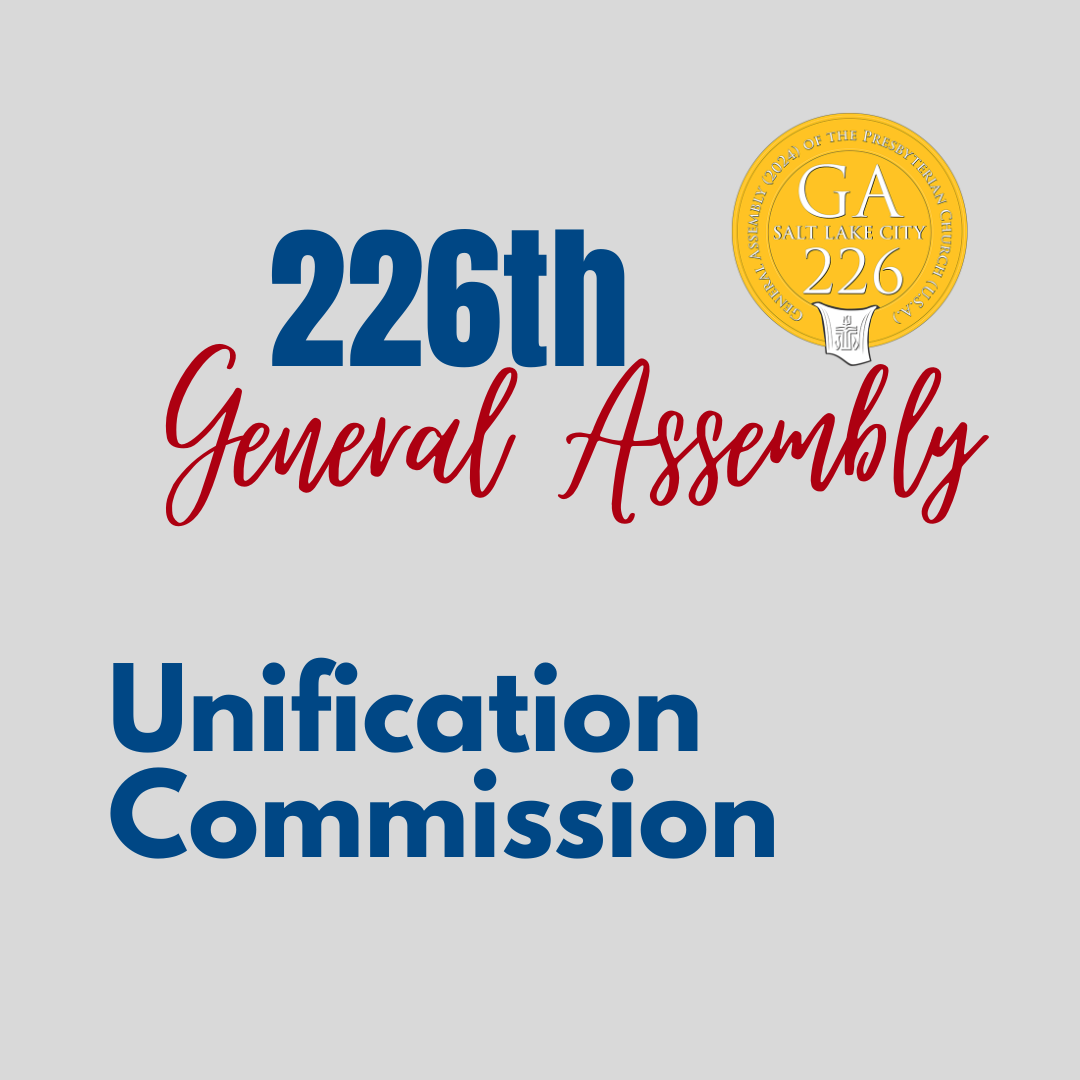GA voted not to affirm the Korean Caucus
This was a powerful and thought-provoking discussion at the General Assembly. It challenged us to reflect deeply on what it truly means to be inclusive while remaining rooted in our values.
As a church, we affirm that all people—women, LGBTQIA+ individuals, and people of color—are beloved children of God, deserving of love, dignity, and respect. Inclusion means honoring people fully, not just welcoming them in the door, but treating them with compassion and integrity.
However, inclusion is not a license to reject or undermine our shared values. When we welcome individuals or groups—whether into leadership, caucuses, churches, or organizations—we do so with a clear understanding: this is who we are. If our values align, we rejoice in walking together. If they don’t, we can still honor each other, but acknowledge that this may not be the right place for that partnership.
At this General Assembly, after hearing testimony of ongoing disrespect—particularly the harmful treatment of women, often dismissed as "cultural differences"—the body voted not to affirm the Korean Caucus. This was not a rejection of identity, but a decision rooted in protecting the integrity and safety of all members of our church, especially those who have been harmed.
Throughout the discussion, it became clear how often, even in spaces meant for healing, people default to "fixing" or deciding for others what they need. This moment served as a vital reminder that true solidarity begins with being present, listening deeply, and then empowering those who have experienced harm to lead us in what healing and restoration should look like.
Painful Moments in Debate About Adding Korean Caucus
In both the committee and plenary sessions, the deliberation and debate about recognizing the National Caucus of Korean Presbyterian Churches (NCKPC) as one of the official caucuses of the PC(USA) stirred up painful memories for many and caused new pain for others. Several Korean American women teaching elders shared experiences of being dismissed and excluded within NCKPC, their calls to and gifts for ministry unrecognized or even questioned simply because they were women. Male commissioners who were NCKPC members or members of Korean American presbyteries expressed dismay on hearing these stories; they also shared hopes for more official recognition of the presence of Korean American churches in the PC(USA). Others joined in the pain expressed by the Korean American siblings. The General Assembly voted to disapprove the overture without the comment that was recommended by the General Assembly Entity Coordination Committee asking for NCKPC to do research about the mistreatment of “femmes/women identified individuals and report back” to the 227th General Assembly; the Assembly stood by that decision through a motion to reconsider as a way to respond to the pain and hopes expressed throughout the deliberations.
Sexual orientation, gender identity protections
Commissioners approved a two-part inclusivity change to the Book of Order, adding gender identity and sexual orientation to the list of the “rich diversity”…
Commissioners approved a two-part inclusivity change to the Book of Order, adding gender identity and sexual orientation to the list of the “rich diversity” reflected in the church’s membership (recommendation 1, section F-1.0403) and then recommending an examination of these principles for ordination and installation (recommendation 2, section G-2.0104b) that could determine a “candidate’s ability and commitment to fulfill all requirements as expressed in the constitutional questions for ordination and installation ...” If POL-01 is approved by more than 50% of presbyteries, these changes will be added to the Book of Order.
More Light Presbyterians and Covenant Network of Presbyterians
Amendments 24A and 24C Olympia Overture known as POL 01 became amendments 24 a and 24C
Unification Commission Appointed to Unify OGA and PMA
The Commission to Oversee and Facilitate the Unification of the Office of the General Assembly and the Presbyterian Mission Agency was created by action of the 225th General Assembly (2022) in approving Recommendation 1 in the Report of the Special Committee on Per Capita Based Funding and National Church Financial Sustainability (FIN-10).
The Unification Commission of the Presbyterian Church (U.S.A.) has recently taken several actions affecting agency leadership, staffing and structure over the past six weeks toward their goal of “facilitat[ing] the unification of the Office of the General Assembly (OGA) and the Presbyterian Mission Agency (PMA) into a single agency.”
The process of redefining what ministry will look like in the new Interim Unified Agency of the Presbyterian Church (U.S.A.) became a little clearer on Monday. Plans were announced that will reconfigure several programs impacting the ministries of Theology, Formation & Evangelism; Compassion, Peace & Justice; the Presbyterian Historical Society; and Communications.
Over the past year, the Rev. Jihyun Oh, now Executive Director and Stated Clerk of the General Assembly of the PC(USA), gathered with leaders, including the Rev. Bronwen Boswell, Acting Stated Clerk of the General Assembly of the PC(USA), and the Rev. Dr. Diane Moffett, President and Executive Director of the Presbyterian Mission Agency, to support core mission and ministry priorities of the 2025–26 GA approved budget: support of mid councils, leadership development, reparative justice, life of the Communion, strategic partnerships and operations.
New Interim Unified Agency of the PC(USA) takes next step in reimagining work going forward
Planning process includes reconfiguring ministry work. by Presbyterian News Service
Published: November 6, 2024
Unification Commission consolidates PC(USA) agencies, resulting in program changes and staff reduction. ‘Interim Unified Agency’ to be led by Stated Clerk Jihyun Oh.
by Gregg Brekke Published: November 21, 2024
Three weeks after their October Unification Commission meeting, Oh and denominational leaders announced the reconfiguration plan that included the reduction in force and the specified ministry areas’ restructure or elimination. The employees affected by the layoff received severance packages.
According to a Presbyterian News Service article, these changes include:
Reconfiguring the work of the Peacemaking Program, dissolving much of its work and eliminating all staff positions except one employee engaged in gun violence prevention, which will now reside in the Office of Public Witness.
Reconfiguring the Theology and Worship program area.
Integrating the Vital Congregations Program with 1001 New Worshiping Communities including integrating these programs more closely with the work of intercultural associates in Racial Equity and Women’s Intercultural Ministries (RE&WIM).
Reviewing the committee and board structure of the denomination. All meetings of the Presbyterian Historical Society Board, Educator Certification Committee and advisory committees related to One Great Hour of Sharing (advisory committees for Presbyterian Disaster Assistance, Self-Development of People and the Hunger Program) will pause in-person meetings in 2025 while the Unification Commission reviews all committees related to the Interim Unified Agency.
Reimagining the Presbyterian Historical Society Journal of Presbyterian History as an online ecclesial-focused publication.
Episcopal Presbyterian Agreement
We invite you to watch this important conversation with Beth Carlisle, Communications Manager of Denver Presbytery, and Anne Bond, former Stated Clerk, as they discuss a key amendment coming before us.
The Episcopal-Presbyterian Agreement emerged from the ecumenical initiative Churches Uniting in Christ, which sought to foster deeper unity among Christian denominations. Differences between The Episcopal Church and the PC(USA) became obstacles in this broader effort, prompting the two denominations to enter a long-term bilateral dialogue.
The first round of dialogue, concluding in 2008, resulted in an 11-point agreement approved by both churches. The second round addressed key theological and structural topics such as ordination, oversight, and sacraments. The third round, concluding in 2024, led to a proposal for limited sharing of ministries, encouraging expanded ecumenical collaboration without full ministerial exchange.
A Presbyterian representative in the second round (beginning in 2009) later served as Presbyterian co-chair for the third round (2019–2024). Despite challenges posed by COVID-19, the dialogue continued, incorporating insights from numerous guests and identifying existing joint Episcopal-Presbyterian ministries. The discovery of more joint congregations than expected highlighted the creative ways these two traditions have collaborated in shared witness and mission.
We invite you to watch this important conversation with Beth Carlisle, Communications Manager of Denver Presbytery, and Anne Bond, former Stated Clerk, as they discuss a key amendment coming before us.
In this interview, Anne provides insight into the 226th Amendment regarding the Episcopal-Presbyterian Agreement, an important decision we will be voting on at our May 20, 2025, Presbytery Gathering. She explains what this amendment means, its implications for our churches, and why it matters for our shared ministry.
We encourage you to watch, reflect, and come prepared for our upcoming vote. Thank you for your engagement in this important process!
Board of Pension Changes
A significant change that was announced in 2024 were the changes to the dues structure of the Board of Pensions (BoP).
A significant change that was announced in 2024 were the changes to the dues structure of the Board of Pensions (BoP). In addition to expanding access to the pension program, the most significant of the changes were how dues would be calculated for minister members serving in installed congregational ministry positions, and the cost of covering dependents. For more information on the changes that took effect at the beginning of this year, visit the BoP’s Season of Rebuilding website.
For many years, the cost for the traditional Pastor’s Participation Plan that was required for all installed ministers was a percentage of the pastor’s total Effective Salary. Under the previous plan, the cost remained the same whether the coverage was solely for the minister member, or for the minister member and any number of dependents. In other words, it would cost the same to cover “Rev. Billie” who is single, without dependents as it would to cover “Rev. Alex,” who is married and has a child.
The change in dues structure was a significant shift from what the Pastors and churches were accustomed to and created a significant stir by some church leaders. In response to the BoP changes, the Synod of Lakes and Prairies brought forth an overture to the 226th assembly that sought to “alleviate the burden on small congregations and present options for medical coverage for pastoral leaders needing family, spousal, or child coverage.” The full overture can be read HERE.
The overture that was approved requested that the Association of Mid Council Leaders (AMCL) select 5 Mid Council Leaders that would work with the Board of Pensions on the issue. Though no immediate changes were made to BoP plan, the BoP leadership and the AMCL have opened communication with each other and had their initial meeting in late January to discuss a way forward. A series of meetings will continue throughout the year and we will continue to share information as it is made public.
For questions, contact our Church Consultant, Kristin Leucht or 267 815-1329.





